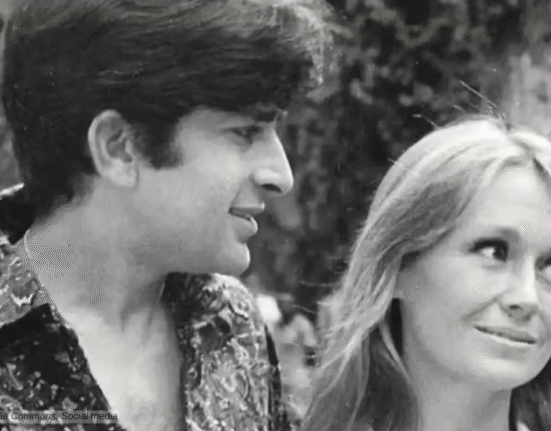Best remembered as Jodhabai of Mughal-E -Azam, Durga Khote was a pioneering figure in Indian cinema. A legendray career spanning over five decades, starring in around 200 films and numerous theatre productions. With countless iconic performances, she is widely considered one of the greatest actors of all time.
In the year 2000, India Today acknowledged Durga Khote’s by featuring her in the “100 People Who Shaped India” list. Recognising her as a trailblazer, the publication highlighted her pioneering contribution to Indian cinema. Durga Khote played a crucial role in shaping the early cinema. She broke the ceiling by becoming one of the first women from respected families to step into the film industry.
Early Life
She was born as Vita Lad in Mumbai on 14 January 1905. Durga Khote pursued her education at Cathedral High School and St. Xavier’s College, earning her B.A. She gets married while still in college and settles into married life with her husband, Vishwanath Khote, a mechanical engineer. However, life took a turn when, she lost her huband. At the age of 26, she found herself as the widowed mother to two young sons, Bakul and Harin. Faced with the responsibility of supporting her family, Durga Khote ventured into the film industry, seeking work and embarking on a career that would become an integral part of her legacy.
Acting Journey of Durga Khote

She began her acting journey in the silent film era, making her debut in the 1931 film Farebi Jaal, followed by Maya Machindra (1932) and Ayodhyecha Raja (1932). Khote’s versatility shone through as she effortlessly transitioned from silent films to talkies.
In 1936, she played Saudamini in “Amar Jyoti,” which is one of her most memorable roles. In 1937, she produced and directed a film titled “Saathi,” making her one of the first women directors of India.
One of her most significant roles came in Sohrab Modi‘s “Prithvi Vallabh (1942),” where the chemistry between Modi and Khote remains unparalled until today. Her role as the cruel and ruthless princess Mrinalvati, Durga Khote, gave one of the best performances of her life.
Next comes “Admi (1939), “Aachary Atre’s “Payachi Dasi” (Marathi) and “Charnon Ki “Dasi (Hindi) (1941) and Vijay Bhatt’s classic “Bharat Milap” (1942), both of which got her the BFJA Best Actress Award for two consecutive years. Durga Khote remained active in the theatre circuit for many years, especially the Marathi theatre. She was also an active member of theIndian People’s Theatre Association (IPTA).
Memorable Performances
Known for her powerful performances, she played diverse roles ranging from mythological characters to strong-willed women. Durga Khote’s portrayal of Jodhabai in K. Asif’s epic “Mughal-e-Azam” (1960) remains etched in cinematic history. In 1963, she acted in Merchant Ivory’s debut film The Householder (1963).


Some of her other movies are Musafir (1957), Parakh (1960), Love in Simla (1960), Mujhe Jeene Do (1963), Kaajal (1965), Anupama (1966), Sagaai (1966), Devar (1966), Daadi Maa (1966), Chandan Ka Palna (1967), Sunghursh (1968), Jhuk Gaya Aasman (1968), Ek Phool Do Mali (1969), Dharti Kahe Pukarke (1969), Khilona (1970), Gopi (1970), Aanad (1971), Raja Jani (1972), Bobby (1973), Abhimaan (1973), and Bidaai (1974), for which she earned the Filmfare Award for Best Supporting Actress.
Later Life
Her final memorable role was in Subhash Ghai’s Karz (1980). In the film she played the role of the mother of Raj Kiran and Rishi Kapoor (Raj Kiran in reincarnation).
Apart from Hindi cinema, she made significant contributions to Marathi and Gujarati films. Khote’s commitment to her craft earned her accolades, including the Dadasaheb Phalke Award in 1983, recognising her immense impact on Indian cinema.
Durga Khote wrote her autobiography in Marathi, entitled “Mee, Durga Khote,” which was translated into English as I, Durga Khote. Khote passed away on 22 September 1991 in Alibaug, near Mumbai.
Durga Khote on IMDB














Leave feedback about this